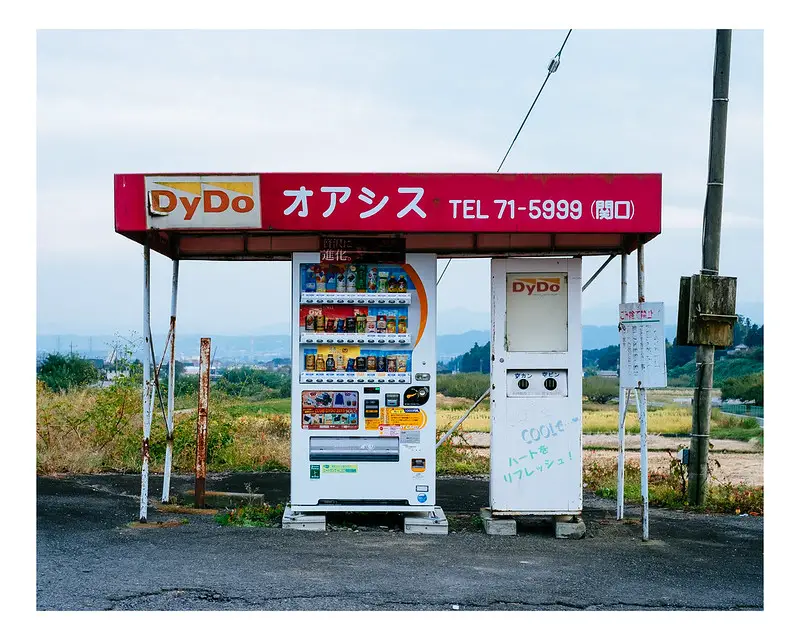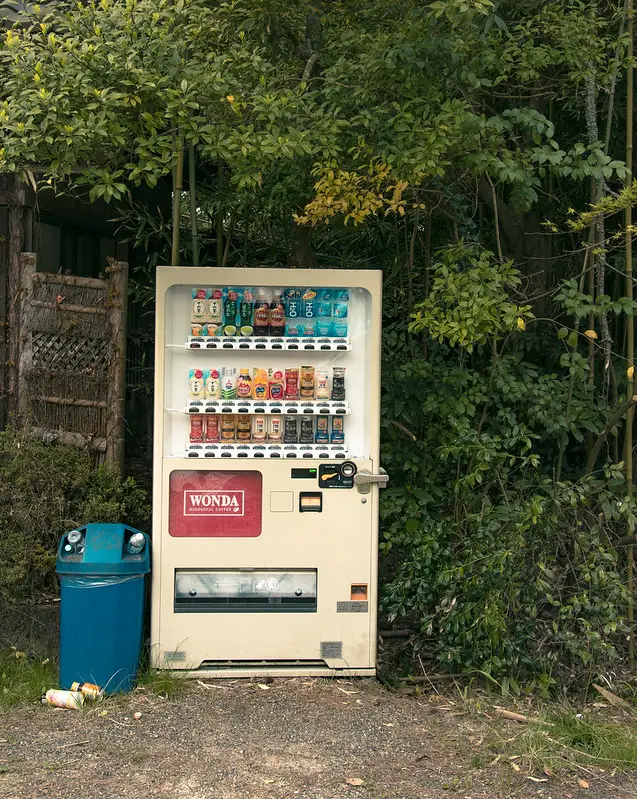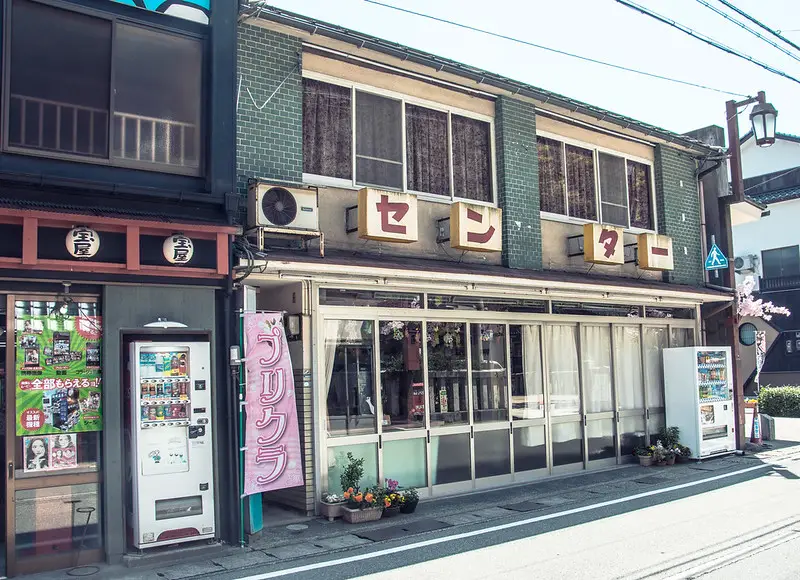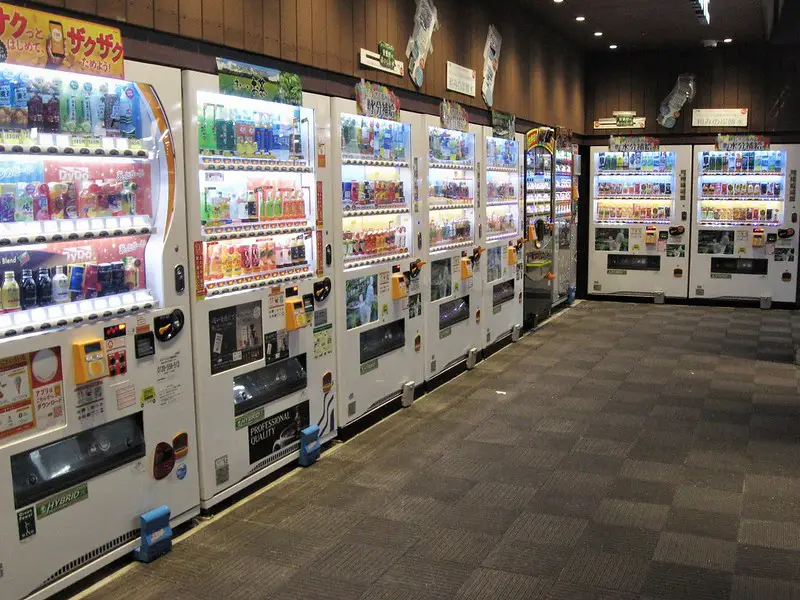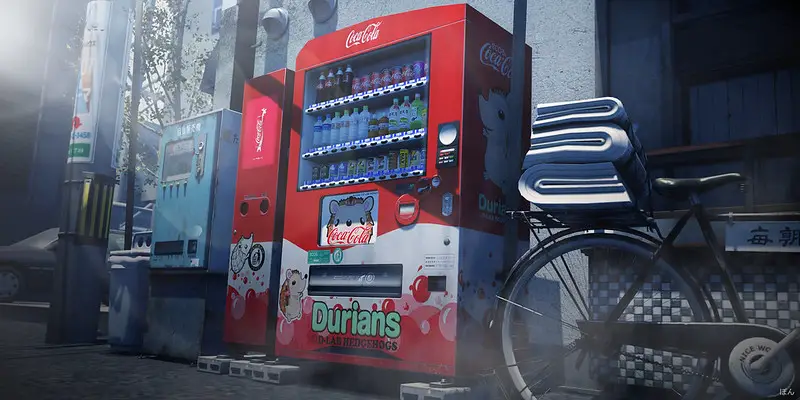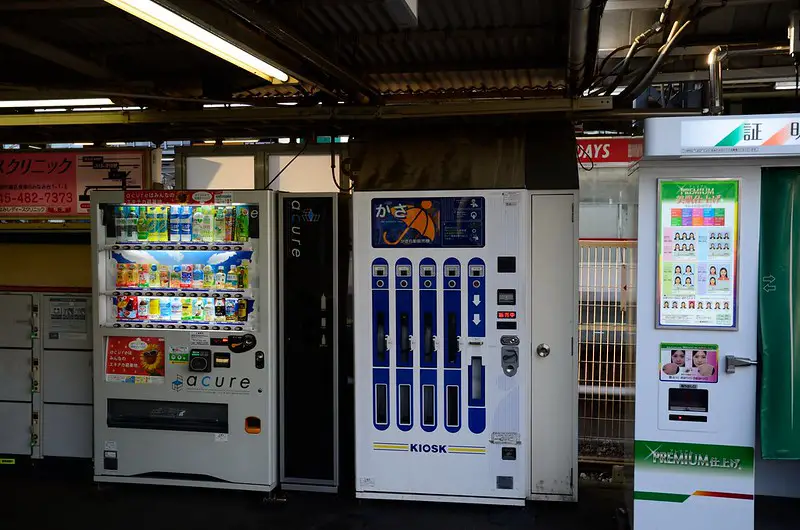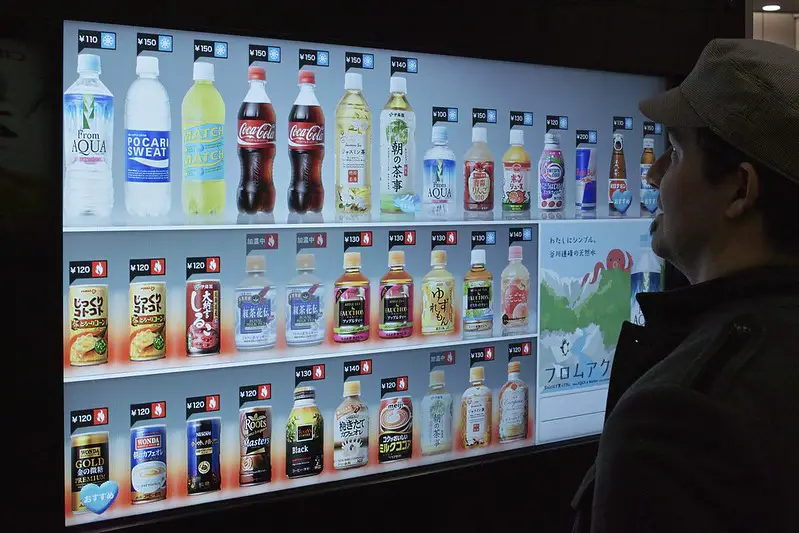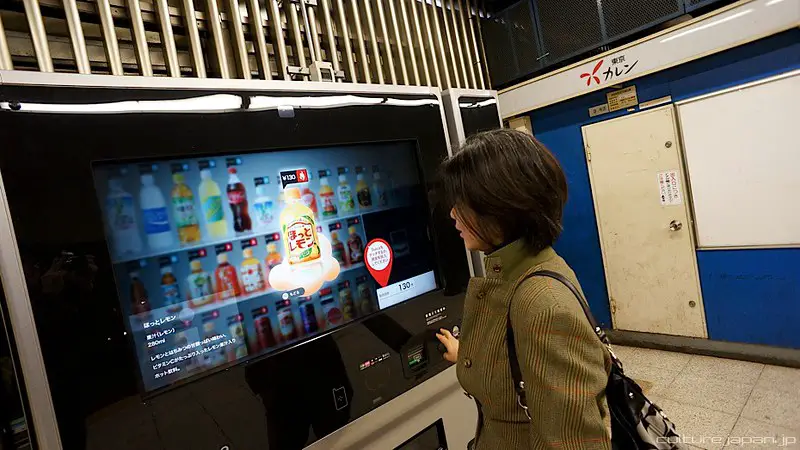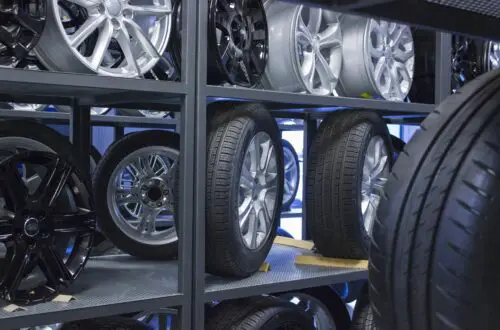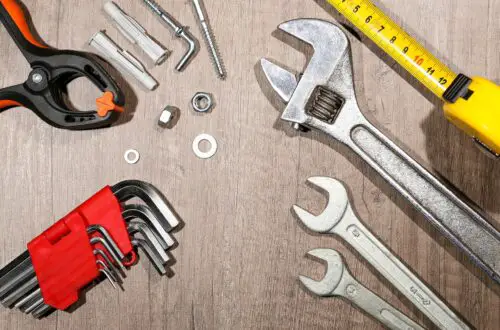
Japan’s Vending Machines: Facts and Images of the Weird Japanese Phenomenon
Did you know that Japan has the highest number of vending machines in the entire world? Here’s everything you need to know about Japan’s vending machines.
At about 5 million, Japan has the highest number of vending machines per capita. There are vending machines for fresh and packaged food, clothes, beverages, toys, electronics, and a lot of other things. Japan’s vending machines are a point of curiosity for the outside world. Read on to know more!
Quick Navigation
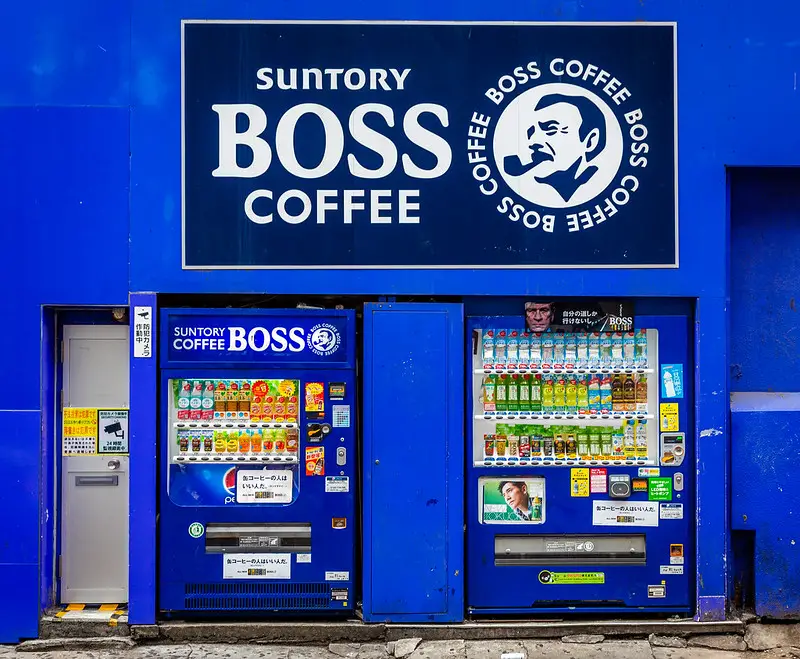
Japan’s Crazy High Number of Vending Machines!
Japan is known for its innovations and inventions. And this translates to their vending machines, too. According to Statista, the number of vending machines in 2010 was over 5 million. But it was reduced to about 4.8 million in 2018. But that’s still quite high! With such a high number of vending machines, you can expect to have a vending machine for almost anything. Vending machines are called jidou hanbaiki in Japan.
Tourists and expats in Japan are amazed by the sheer number of vending machines that they see everywhere. There is at least one, literally everywhere you go. They are in residential areas as well as in commercial complexes.
Even in the countryside, you will see vending machines. In fact, Japan’s crazy obsession with vending machines is a point of curiosity for those from outside Japan. In some streets of Japan, there are several vending machines installed close to each other. Each holds different products.
I have to say my mind is blown when I go to Japan for the first time. It just seems they have a vending machine for everything
Anonymous user, Reddit.com
The U.S. also has a very high number of vending machines. But according to data collected in 2017, the number of vending machines in the U.S. was an estimated 4.6 million, a little lesser than Japan. But the density of the vending machines is undoubtedly highest in Japan. No wonder then, that according to data collected in 2017, there was 1 vending machine for 23 people in Japan.
What Can You Get from a Vending Machine in Japan?
Well, as you already know by now, you can get almost everything from a vending machine in Japan. The below table shows the distribution of vending machines product-wise. The data is from 2018 collected from Japan Vending services Manufacturers Association (JVMA).
| Type of Product | No. of vending machines |
| Drinks | 2,423,800 |
| Foods | 72,000 |
| Self-service | 1,297,300 |
| Ticket machines | 58,400 |
| Cigarettes | 153,300 |
| Daily Essentials | 230,300 |
Below is a broad classification of vending machines in Japan to give you an idea of really how broad the concept is!
The regular vending machines
Below are some of the more routine vending machines that you can find in Japan.
Food & Beverages
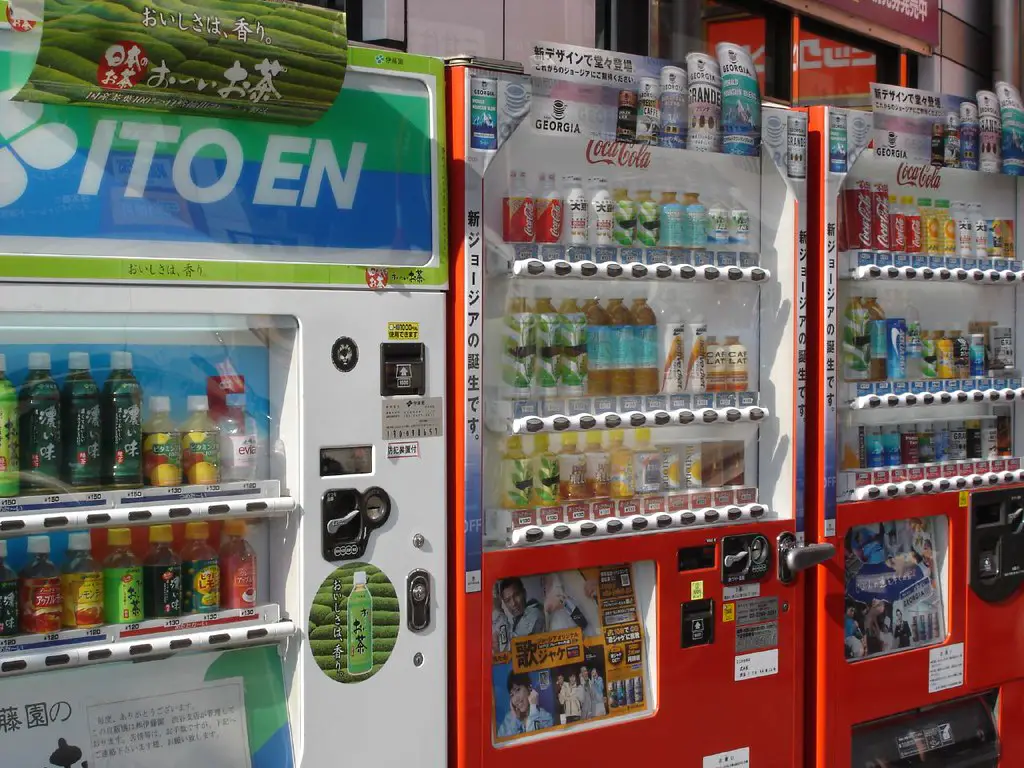
Beverages are the most sold product through vending machines in Japan. From Nattos (a protein-rich breakfast) to sushi and from corn chowder to soups, you get everything! Beverages such as coffee and bottled tea are quite popular. You can even buy milk! Also, a variety of soft drinks, corn syrups, and ice creams are also available. Many vending machines have both hot and cold drinks distinguished by red and blue labels.
Alcohol
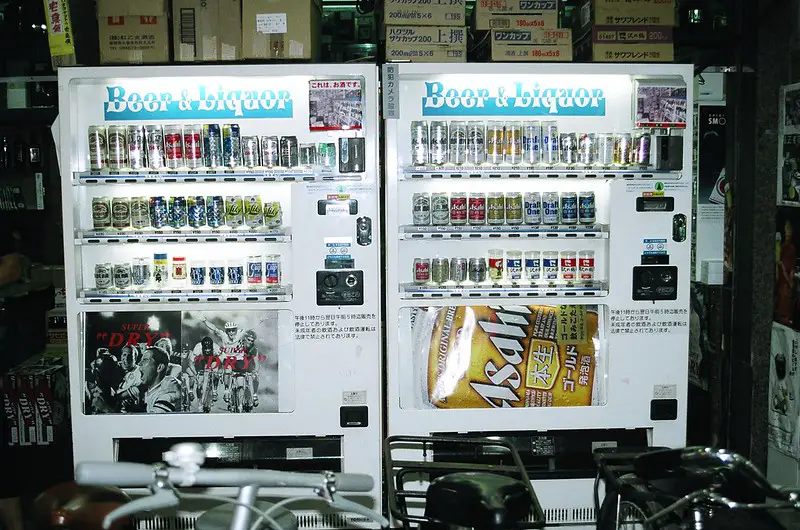
Even though the liquor-selling vending machines were stopped, a few still exist. They require an ID as age proof. Most of these remaining vending machines are now found not on the streets but inside hotels. And inside the hotels, an ID is not required.
Umbrellas
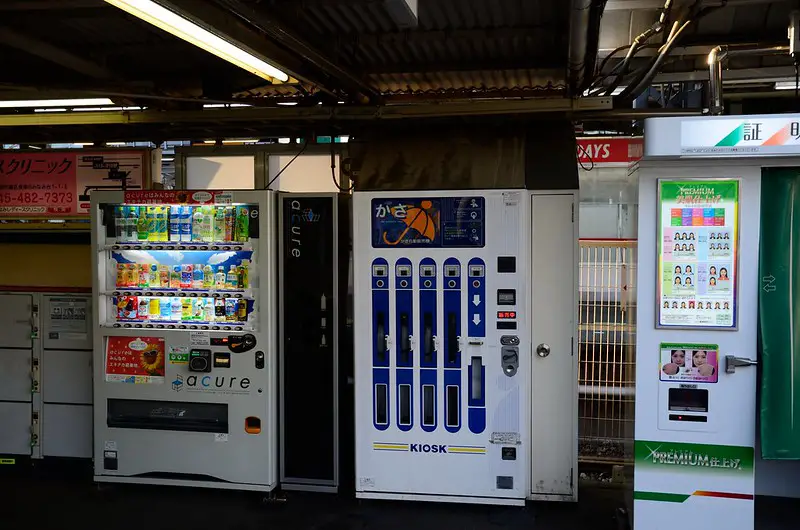
Yes, there are a few umbrella vending machines in Japan, too! In many parts of Japan, unexpected rains are common. An umbrella vending machine might just save the day for you!
Cigarettes
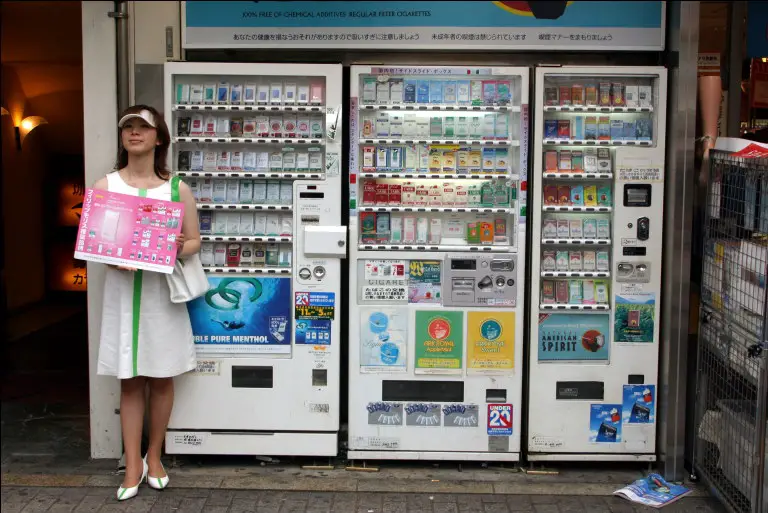
Japan has a high number of smokers and this is why cigarette vending machines are still a thing. You need the Tapso card as proof of age, though.
Toys
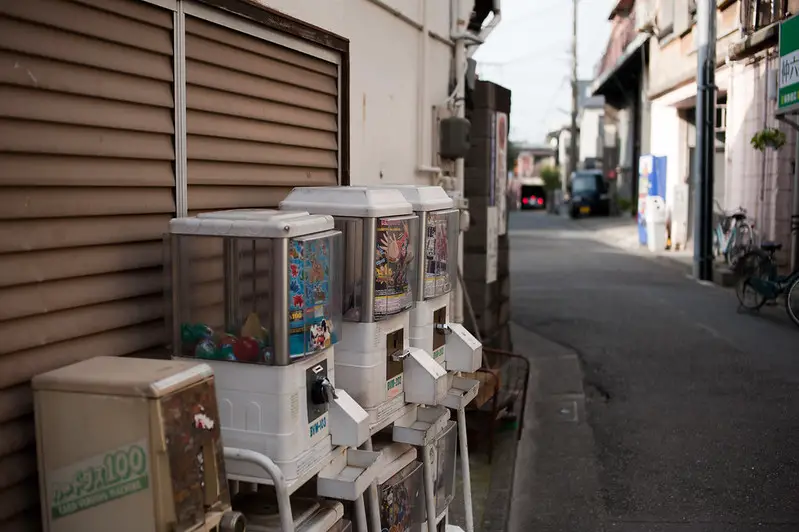
Think board games or playing cards or even action figures. There are Pokémon-themed or any other popular anime/manga themed vending machines, too. You can get everything from soft toys to action figures.
Clothing
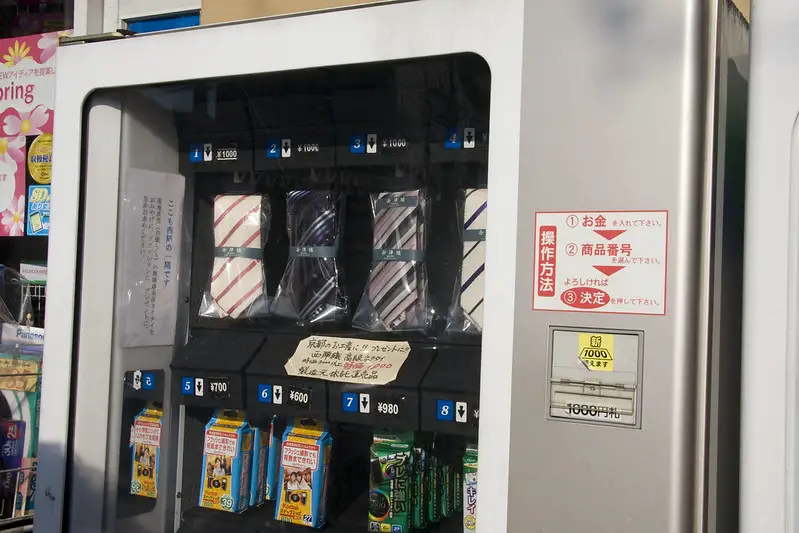
T-shirts in cans are what you can get in Japanese vending machines. Neckties and handkerchiefs are also popular variants in this segment. Also, you can get fresh underwear and lingerie from vending machines! Of course, no trial rooms are available for what you buy.
Vegetables, fruit, and groceries
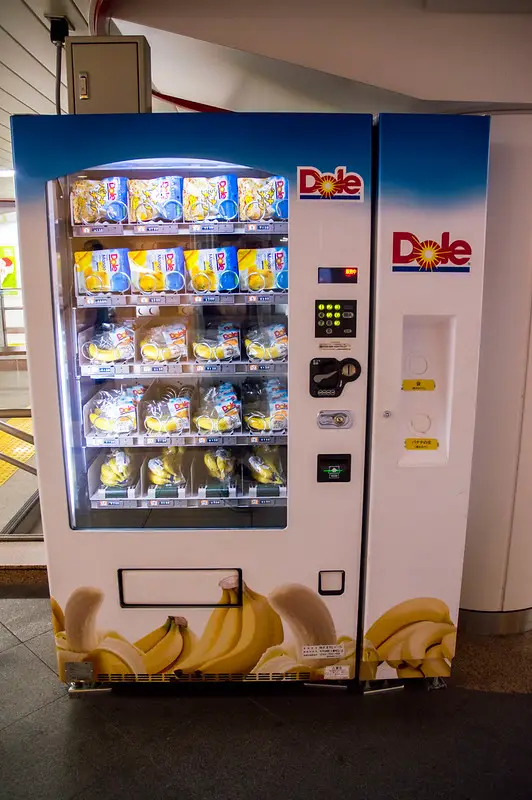
Pick lettuce, bananas, apples, and all other vegetables and fruit from vending machines! Also, you can pick up groceries from a vending machine. Even though not very popular, you can still find some. In fact, Rice vending machines are quite popular in Japan, too.
Other vending machines
Apart from these, you can also find vending machines that have books, magazines, reading glasses, batteries, surgical masks, amulets, and many, many more.
The weird vending machines
While grabbing a can of a soft drink or a bag of chips from a vending machine is common, some of the products that you can pick up from vending machines in Japan can surprise you. Here are the wackiest, weirdest things you can buy from Japan vending machines:
Live Puppies
Apart from the fact that it is frowned upon in many countries, selling live puppies through a vending machine is plain weird!
Fresh underwear and lingerie
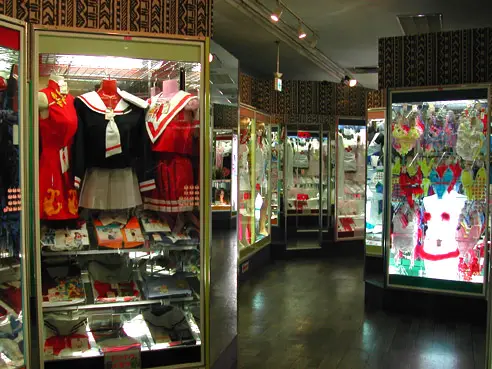
It is difficult to imagine a scenario of why someone on the way to work would want to buy a fresh pair of underpants. But hey, these vending machines exist!
Live Lobsters
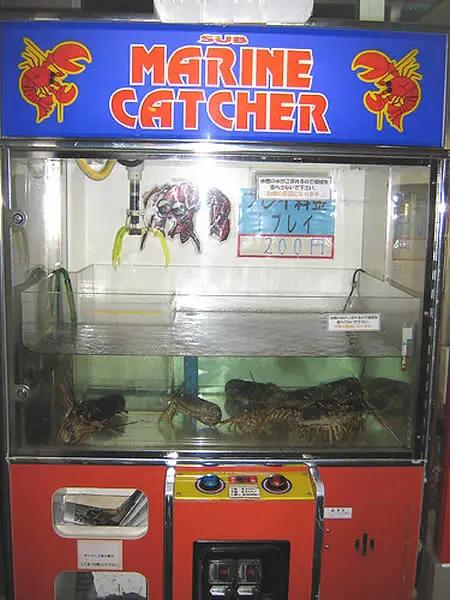
Imagine inserting a coin in a vending machine and getting a live lobster.
Pizzas
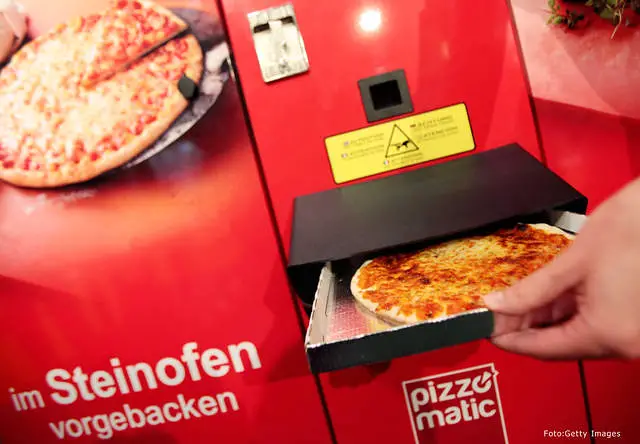
Pizzas are a regular food. But getting one from a vending machine can sure feel weird!
Condoms
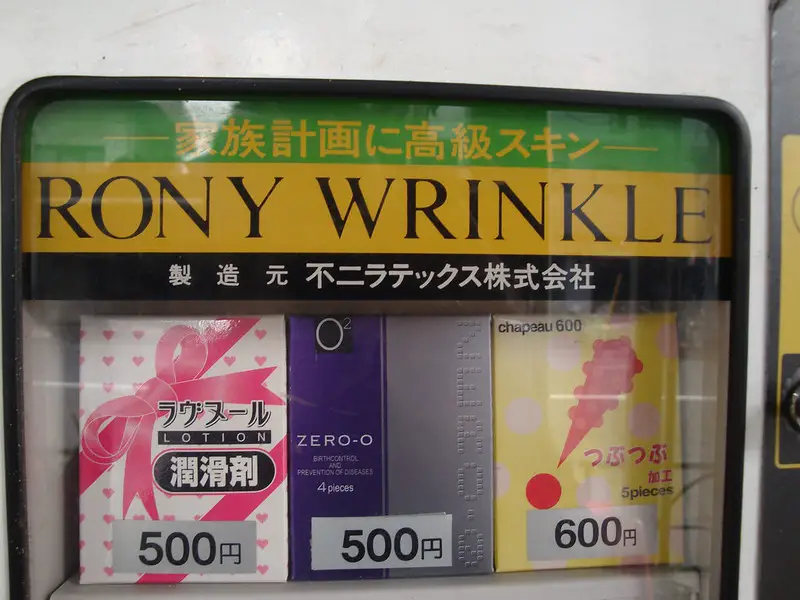
No more asking the pharmacist for a packet of condoms. Japanese vending machines got you covered.
Used schoolgirl underwear
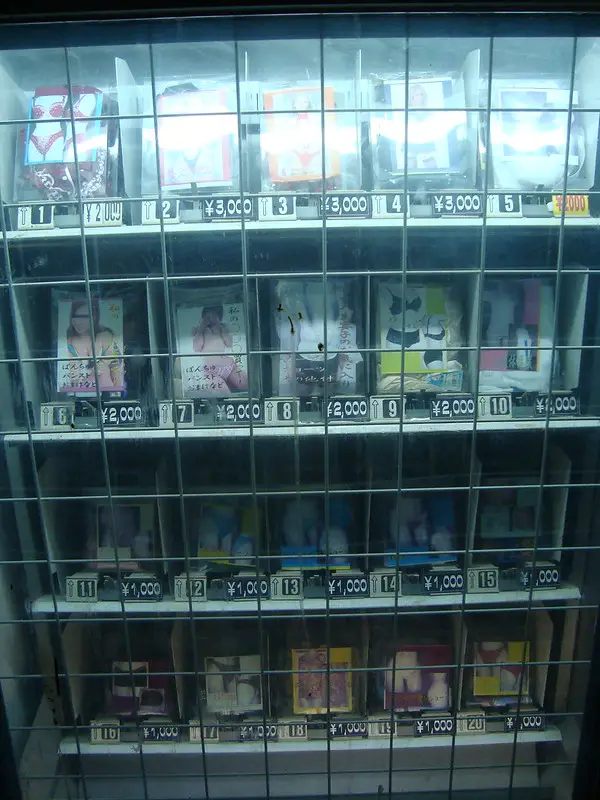
The mere thought of these is plain creepy. But the fact remains that quite a few vending machines that sell used schoolgirl panties packed in a can.
Flowers and floral arrangements
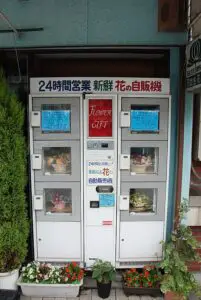
Not just flowers, but beautiful floral arrangements. From a vending machine! Who would have thought?
Girls’ phone numbers
This is not just creepy, it is beyond comprehension. But again, yes, they exist!
Live Rhinoceros beetles
Young boys in Japan like to keep rhinoceros beetles as pets. They also organize fights between their beetles. Weird, but true.
Eggs
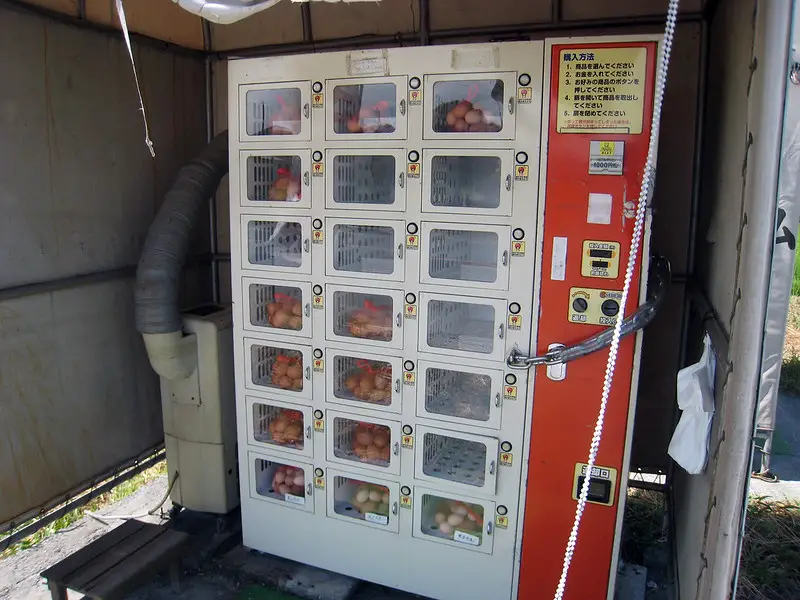
Picking up a dozen eggs from a vending machine on the way home from work must be pretty convenient!
Dog wigs

No idea how dog wigs are even a thing! But somewhere in Japan, a vending machine sells just that!
Origami
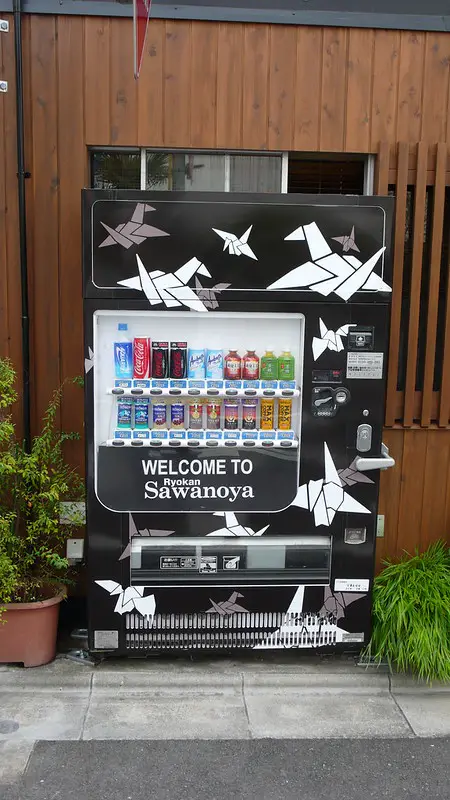
Japanese origami is well-known. And now you can pick up souvenirs from a vending machine.
Omikuji (Japanese horoscope)
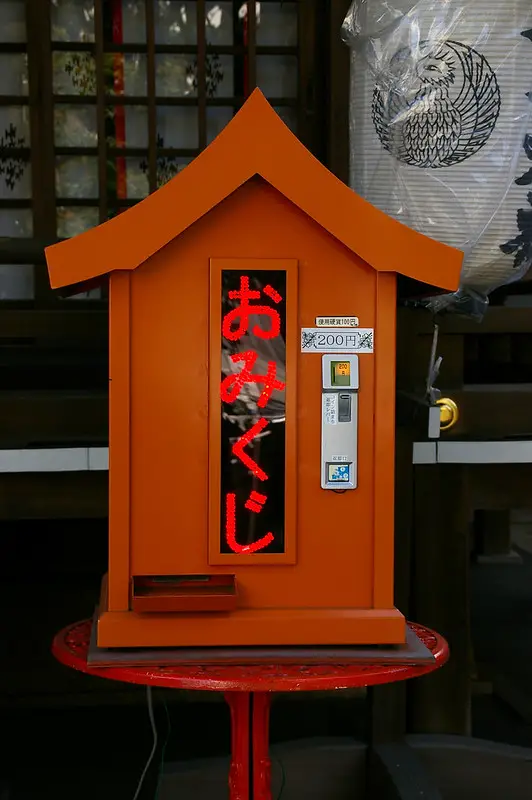
If you don’t know what omikuji is, think of it like a fortune cookie. But this one does not come from a cookie. It comes from a vending machine!
The Akihabara Vending Machine Corners
The list of vending machines in Japan would be incomplete without the mention of the Akihabara vending machine corners. In fact, this major tourist attraction is so popular, it needs a separate mention.
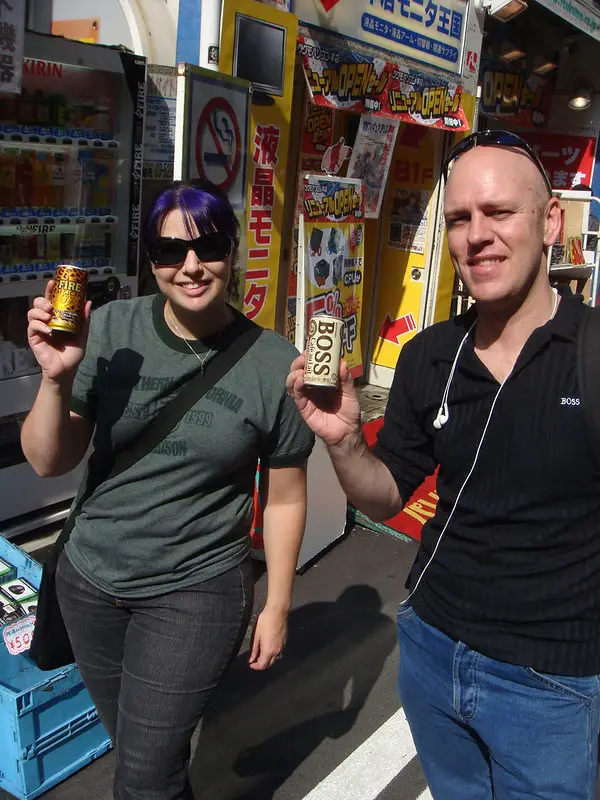
So, the Akihabara street, which is also well known for Otaku and Fujoshi shopping, is also home to some weird vending machines. “Akihabara Vending Machine Corner” is an area on the Akihabara street that holds several vending machines lined up close to each other. If you start walking from the Akihabara station towards the Akihabara street, you will find this small, slightly hidden corner after a five-minute walk.
Most of the vending machines found here are regular machines that sell beverages and food. But some of them are worth a mention:
- A vending machine selling Otaku stuff – This type of vending machine is very popular with die-hard Otaku fans.
- Treasure vending machines – This is an interesting concept. You don’t know what you might get here. You just need to insert the money and the machine chooses a product for you.
- Idol photographs vending machines – Idols (young female singers) are very popular in Japan. There’s a vending machine that sells the Idols’ photographs.
- Other things you can get are model trains, lots of different toys, snails, yakitori (chicken skewers), jams, and lots of other things.
Why Are There So Many Vending Machines in Japan?
Apart from the notion that the Japanese are obsessed with vending machines, what is the reason for such a high number of vending machines in Japan? This question has triggered a lot of curiosity outside Japan. Here are a few reasons.
Crime rate is low in Japan
Japan is a country with one of the lowest crime rates. Vandalism is very low in Japan. So, unlike other locations around the world, a vending machine in Japan is rarely damaged or robbed by the people. Even when the machine is placed outdoors in a park or on the street, it remains safe.
Vending machines offer convenience
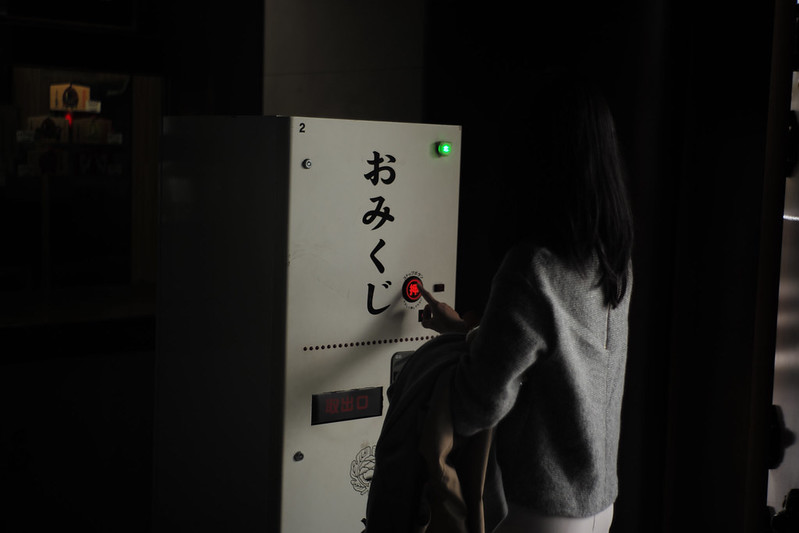
Japan is a place where everyone is busy. People are constantly on the move and the working hours are long. In Tokyo, it is common for people to work overtime. In such cases, vending machines are very convenient. They come in handy when people need to buy food or beverages outside standard working hours. Vending machines are available 24X7. They also save time since people don’t have to stand in queues at check-out counters like in convenience stores.
Vending machine operations are low-cost
Vending machines are unmanned. Thus they offer a low-cost option for selling products compared to convenience stores. They don’t need people to sell products, manage money, or provide security. The cost of labor in Japan is high owing to its low birth rate. Hence, an unmanned vending machine provides a better return on investment.
Also, urban areas of Japan are densely populated. This has caused real estate prices to be very high. Retailers find it much cheaper to invest in a vending machine instead of renting out space for a store.
Vending machine system is seamlessly maintained
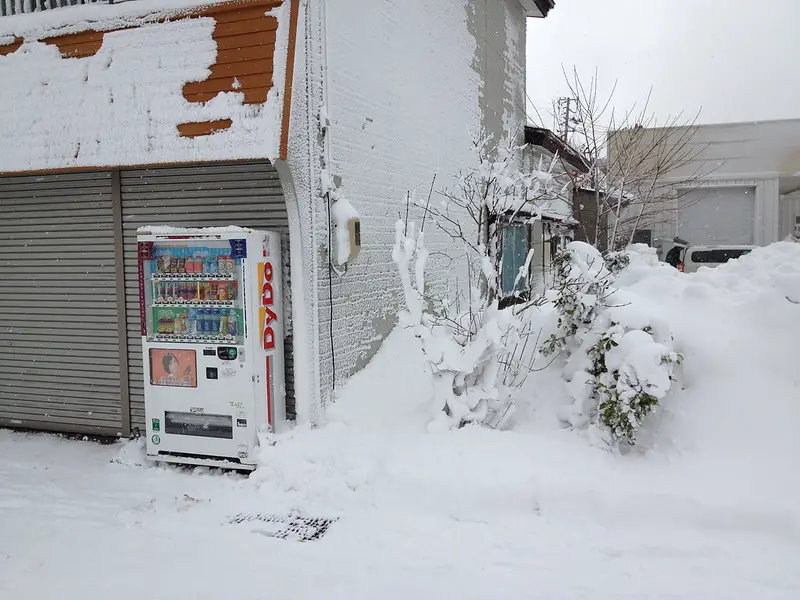
The maintenance of vending machines in Japan is easy and seamless. Specialized maintenance companies restock the machines. They are also responsible for emptying trash cans. Trash cans can be installed as a part of the vending machine or are placed near them. Hence, there is a lesser chance of littering.
Japanese are methodical people. Even when it’s snowing in Japan and the vending machines are buried in snow, the Japanese people are quick to come for maintenance and the vending machine remains operational.
Japan is a cash-based economy
The Japanese believe in carrying cash everywhere with them. So, they are more inclined to using a vending machine. Compared to other parts of the world where people are more prone to using plastic money, it is easier in Japan to use a vending machine.
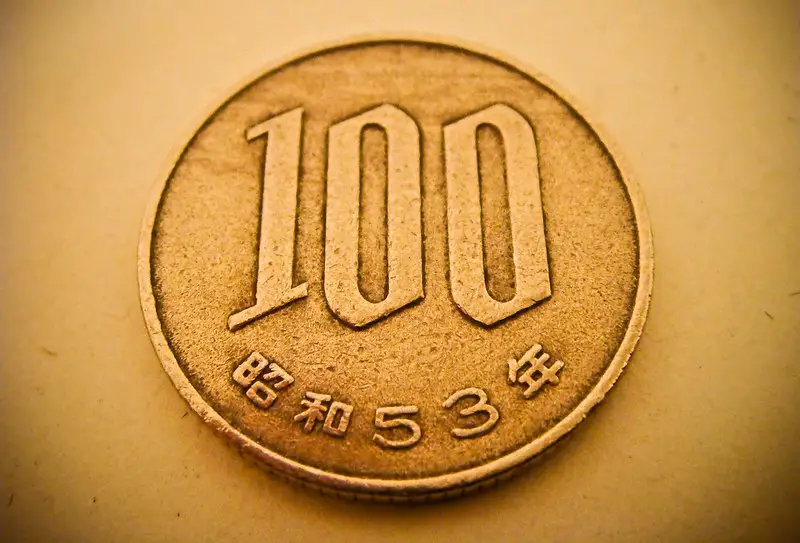
Also, an interesting fact is that in 1967, 100 Yen nickel coins were cast. This made the total number of 100 Yen coins go to 800 million. The number of coins steadily increased and now stands at more than 10 billion. The easy availability of these coins makes it possible for people to casually and conveniently use vending machines.
The Japanese love robots and automation
The Japanese have a special affinity towards robots and automation. Thus, they find it quite comfortable to buy things from an automated vending machine. Also, the vending machines provide a kind of certainty. Japanese people hate guesswork. They like to know what to expect, and then get what they are made to expect. Vending machines, with their clear instructions and predictability, provide this.
Vending machines have low-cost beverages
The prices for drinks available in vending machines are still quite low. Even in Tokyo, which is an expensive city, juice and other beverages available in vending machines are surprisingly cheap.
How to Use a Vending Machine in Japan?
It is not difficult to operate a vending machine in Japan. However, note that a lot of vending machines do not come with English instructions or explanations. You need to insert the money first. Most vending machines take the below currency denominations:
- 10 Yen coins
- 100 Yen coins
- 500 Yen bills
- 1000 Yen bills
You cannot use 5 Yen or 1 Yen coins in Japan.
Vending Machines – Beyond Just Dispensing Products
There seems to be no limit to the imagination of people who come up with ideas for making vending machines. Below are some vending machines found in Japan that are very innovative. They go beyond just dispensing products for you.
The ‘Smart’ Vending Machine
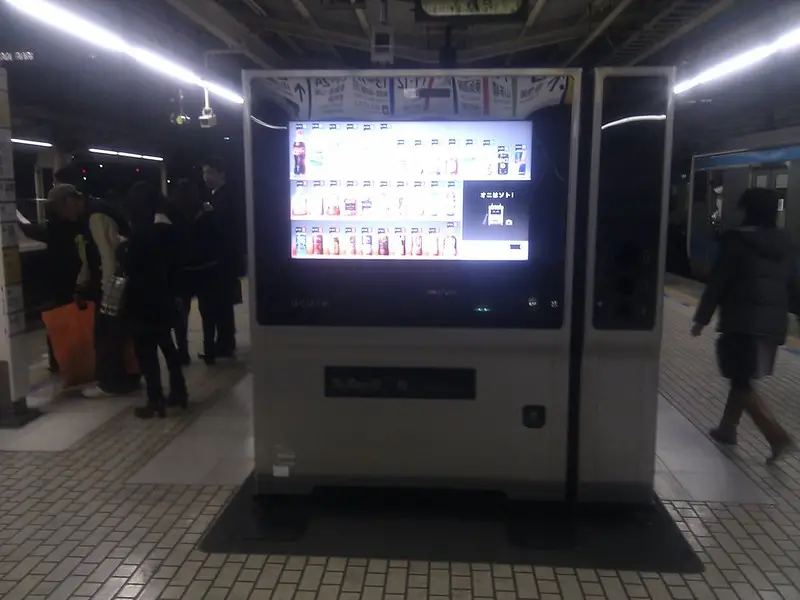
With everything getting ‘smart’, vending machines are not to be left behind. With the IoT (Internet of Things), we have smart vending machines in Japan now. They come with a large digital display, touchscreen functionality, internet connectivity, cameras and sensors, high computing power, and other smart features.
These vending machines provide a more interactive experience to the buyers. They also enhance efficiency and keep operating costs still lower than an actual store selling products. These vending machines can be remotely managed and their backend analytics give more insights into buyer behaviors. Data such as demographics, purchase trends, etc. can be collected which can help improve marketing strategy and product development.
Vending Machines that double up as advertisements
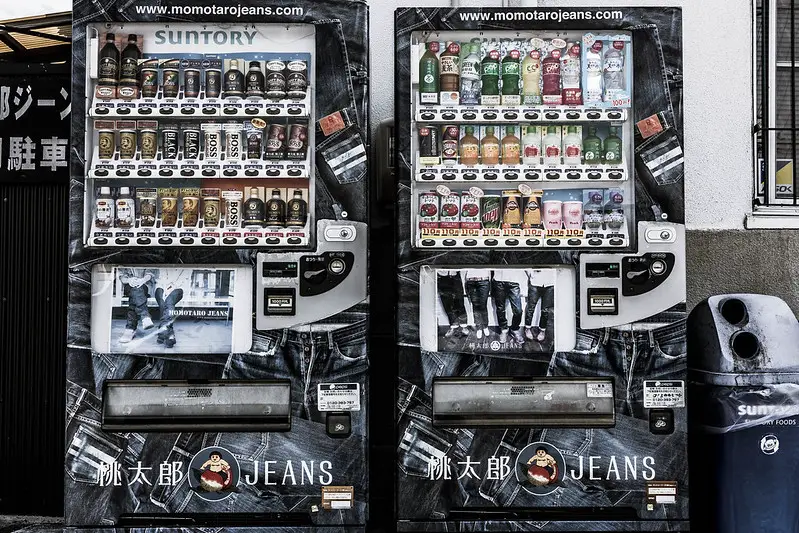
The ubiquitous vending machines in Japan are easily the best place for branding. So, many vending machines will have the company’s name and brand clearly mentioned on the side. Thus, the machines not only manage to sell the product for the company but also get the brand some recognition.
Some vending machines also feature advertisements not related to the product they are selling. So, in a way, they act as billboards for advertising. The LCD screen also serves as a bulletin board that gives information such as delays in bus timings, sales, and other information.
The Futuristic Cashless Vending Machines
The new vending machines have a face, eye, or fingerprint enabled recognition feature for cashless transactions. They can also recognize the gender and age of the person and even suggest drinks based on machine learning. So, if you are unsure of what to buy, the vending machine might have some ideas for you! Don’t worry, though. If you don’t like what the machine suggests, you can override the decision with the click of a button.
Vending machines during emergencies
There are many vending machines in Japan that can be programmed for use during emergencies. For example, they can be used to dispense free food and beverages when there is a calamity. This is done through the ‘free-vend’ option, which is a feature on some of the vending machines. Such vending machines worked well during the 2004 Niigata Chuetsu Earthquakes. The vending machines offered free beverages to the victims.
Also, all the vending machines come with an address on them. So in case of an emergency, all people have to do is look at the nearest vending machine to tell where exactly they are. The vending machines have battery backups so that they work even if there is a power outage.
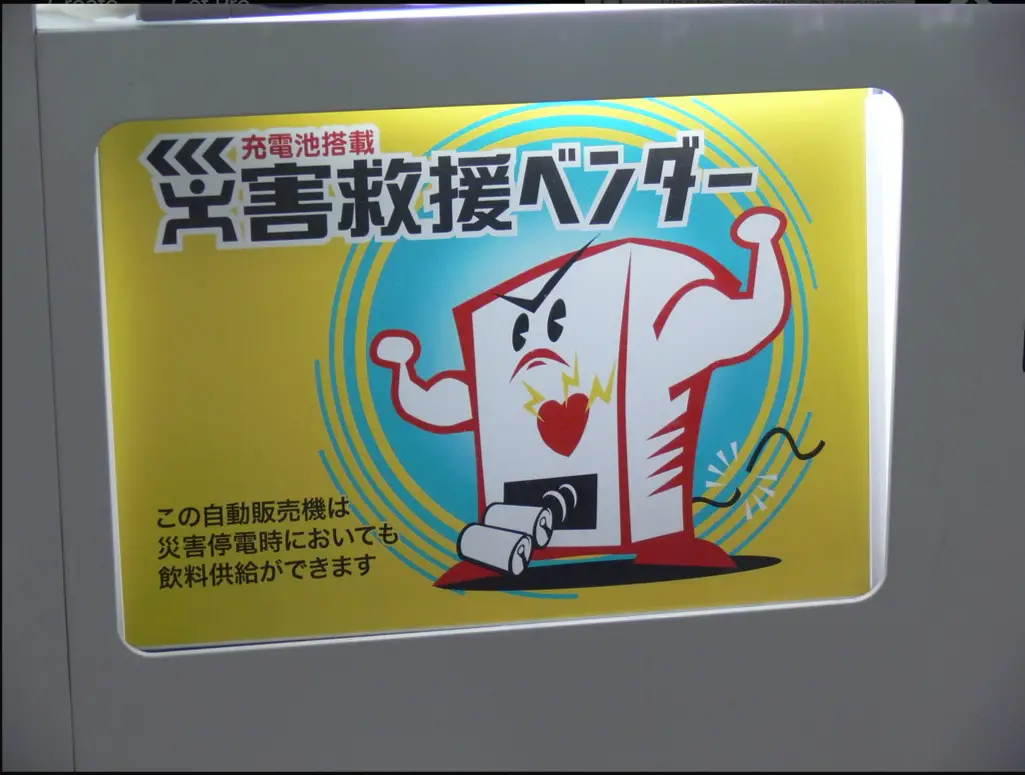
There is also a vending machine that comes equipped with an AED (Automated External Defibrillator). There is one that has an LCD screen which shows critical information such as the location, nearest evacuation area, and how to get there.
The Interesting History of Vending Machines in Japan
Even though the boom in the vending machine industry in Japan is in the last 60-70 years, the first vending machine goes back to 1888! It is believed that this vending machine was for tobacco. The inventor of this vending machine was a furniture artisan by the name Tawaraya Koshichi. He even patented this machine.
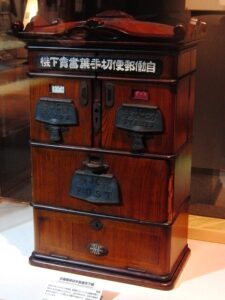
The earliest existing vending machine was also by Koshichi. It was used for dispensing stamps and postcards. Koshichi, a furniture artisan himself, made a wooden machine with intricate carvings on it. It also served as a mailbox. It is amazing that the machine could display prices and could dispense change. The mechanism used was similar to the one used in the Japanese wind-up dolls.
The concept of a vending machine, without necessarily having a ‘machine’ has been prevalent in Japan. In fact, it exists even now, especially in the countryside. Vegetables are sold at unmanned stalls. People can take what they want and leave cash.
The Increase in Popularity of Vending Machines in Japan
The reason for the popularity in Japan can be credited to a juice dispensing machine which was used sometime in the 1950s. Dubbed as the ‘Fountain-style juice dispenser’, it was a box with a juice fountain on it. The people loved this innovation. Also, the juice was priced at just 10 yen for a cup. People lined up to use this dispenser, and just like that, the culture of vending machines started.
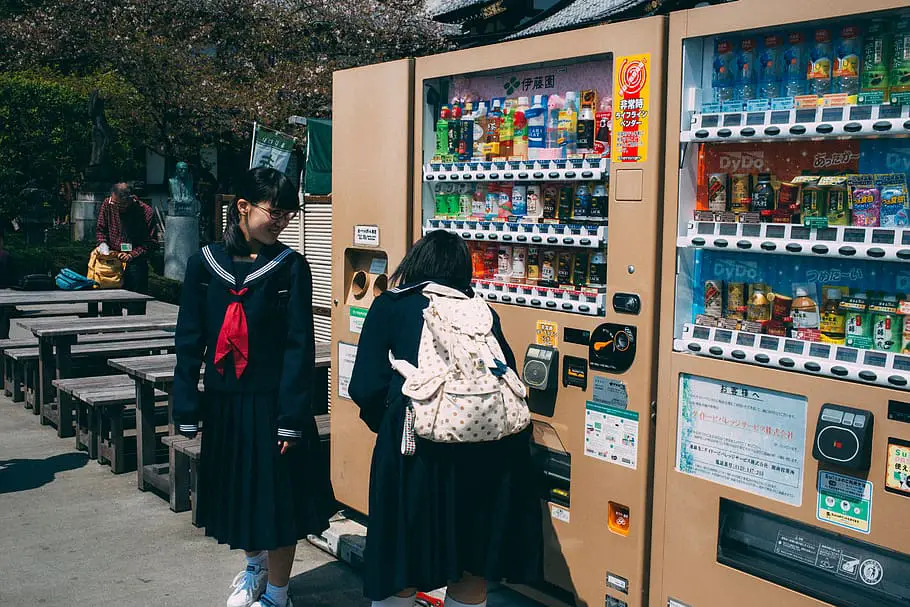
With other businesses and even beer companies investing in this new trend, the vending machine business grew in Japan. In 1964, Japan boasted an estimated 240,000 vending machines. This number grew very rapidly and by 1970, it had reached the 1 million mark. There was no looking back after this as the number more than doubled in three years. And by 1984, Japan had a staggering 5 million vending machines.
After 1984, the number of vending machines grew at a moderate size. But the increase rate was still enough to place Japan as the undisputed leader in the vending machine industry across the world. In 2000, the number reached its peak at 5.6 million.
The Decrease in the Vending Machine Boom
The number of vending machines is still quite high in Japan. But it has been decreasing in the past few years. The below table shows the decline in the number of vending machines in Japan from 2010 to 2018.
| Year | Number of Vending Machines (in millions) |
| 2010 | 5.21 |
| 2011 | 5.08 |
| 2012 | 5.09 |
| 2013 | 5.09 |
| 2014 | 5.04 |
| 2015 | 5.0 |
| 2016 | 4.94 |
| 2017 | 4.89 |
| 2018 | 4.84 |
Source: Statista
A few apparent reasons for this are:
- In May 1995, it was decided to remove alcohol vending machines. This move was to prevent underage access to liquor. Thus, many vending machines were discontinued.
- In 2008, it was made mandatory to get your age verified through the Tapso card for buying cigarettes from a vending machine. People found it inconvenient to take out the card every time they had to buy a cigarette and preferred a convenience store, instead. Sales suffered and resulted in some machines being removed. The number of cigarette vending machines which was at 630,000 fell down to 170,000 in 2017.
- It was common for people to buy a cigarette and then get a coffee from a vending machine. With cigarette sales through vending machines decreasing, coffee sales also saw a reduction.
- Convenience store chains had already gained popularity. But since they started having coffee machines around 2011, vending machines took a hit. The coffee at the convenience store was cheaper than vending machines, too!
- Not just coffee, there has been a trend of buying other products from the convenience stores, too. This has contributed to a decline in the number of vending machines.
- Due to e-commerce, online sales have been on the rise. This, too, has resulted in the number of vending machines in Japan going down
The Business of Vending Machines in Japan
According to the Japan Vending Machine Manufacturers Association, the average yearly sales from vending machines in 60 billion dollars. For perspective, the average sales from vending machines in the U.S., a much bigger country, are just about 7 billion dollars. This indicates how popular vending machines still are in Japan.
According to national averages, a vending machine makes 40,000 Yen in a month. But the really popular vending machines such as those that sell beverages make much more. And if the vending machine is in a busy area such as some part of urban Tokyo, it can make as much as 500,000 Yen in a month!
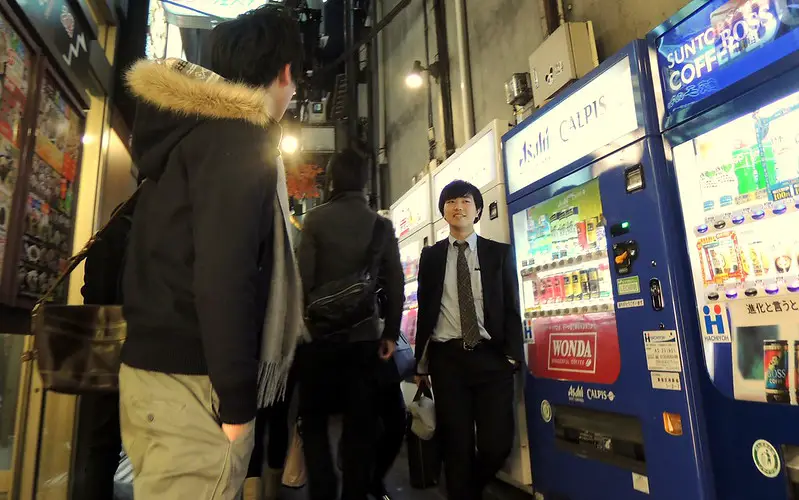
Getting a vending machine is easy in Japan. An interested person can apply for a vending machine. Once the management approves the application, they need to pay an installation charge of about 10,000 Yen. The vending machine is then set up for them at the chosen spot from the available ones. If you get a good spot, the vending machine can be a very lucrative business.
Criticism Around Vending Machines
The Japanese vending machines are wildly popular. They are also a crowd puller and a major tourist attraction. But just like everything else, they don’t come without their share of criticism. The vending machines that sell alcohol or cigarettes need a valid ID for purchase. However, it is still seen as a risk for underage drinking and smoking. Also, for other goods, there is no age restriction and no regulation. This is a worrying aspect according to many.
The vending machines remain on 24X7. Even if they are not being used, they consume electricity. Especially vending machines that sell food have cooling systems and heating systems that take up a lot of electricity. So, there is an opinion that this can lead to a lot of electricity wastage.
According to a study published by the American Diabetes Association in 1998, the easy availability of beverages high in sugar can be linked to the onset of Type-2 diabetes among the Japanese.
Conclusion
The Japanese manufacturers, especially those manufacturing beverages, find vending machines to be a great option to sell their products. The same holds true for tobacco or books. The culture of vending machines is now so deeply ingrained in the minds of the Japanese people, that they are never astonished by the high number of vending machines in Japan. If anything, they wonder why other countries don’t have them!


